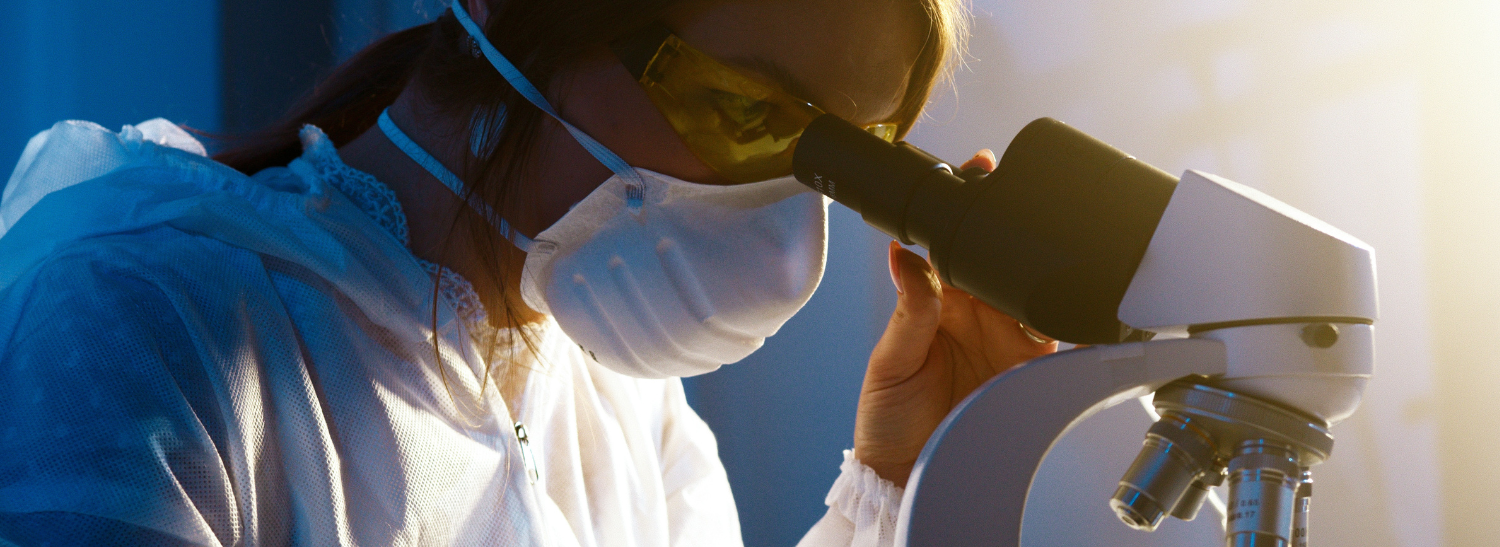Mentorship Needed to Grow Representation of Women in Labs
Women still face challenges when working in labs
Medical Labs Professionals Week is being celebrated April 23-29, 2023. Each year this week is a celebration that highlights and shows appreciation for laboratory professionals. Lab Week, as it is known, is sponsored by the American Society for Clinical Laboratory Science (ASCLS) working with 17 other clinical laboratory organizations across the country.
During a week with the light shining bright on labs, the Women in Medicine Legacy Foundation would also like to shine a light on women who work in labs — and call out the imbalance in representation as well as the challenges they face in getting there.
The theme for Lab Week 2023 is “The Future is Lab” — and the future of labs around the world requires that more women be represented among the ranks. We have seen the benefits of women working in the lab time and time again — from 2021 Alma Dea Morani Awardee Jennifer Doudna, PhD’s groundbreaking work on the development of CRISPR technology to 2017 Alma Dea Morani Awardee Carol Greider, PhD’s work to fight cancer and age-related diseases. The work of lab technicians doesn’t need to reach the level of a Nobel Prize to be impactful and undeniable. Medical laboratory professionals are critical to scientific and medical advances.
However, as of 2020, women make up just 28 percent of the workforce in STEM areas. Women have made headway in the realms of biology (46 percent) and chemistry and materials science (40 percent), but much work is needed to create welcoming environments for this workforce to thrive.
The challenges women face when entering STEM workforces are manyfold including, but not limited to: gender stereotypes, weak STEM pipelines in higher education, male-dominated cultures, the gender pay gap, as well as fewer mentors and role models. The Women in Medicine Legacy Foundation provides some of those role models via our oral histories and our HUB Project.
Gender stereotypes are a leading cause of the representation gap. In 2012, Yale University published a study proving that physicists, chemists, and biologists are likely to view a young male scientist more favorably than a woman with the same qualifications. With that in mind, it’s no wonder young women in high school or earlier count themselves out of a career in science and medicine — the pipeline problem — before even trying. Compound that with men in the same roles earning 25 percent more than women (not to mention about 60 percent more than Latina and Black women) for the same job, the challenges facing women pursuing a career in science are daunting.
For women that do persevere into careers in the lab despite the pay gap and the gender bias, they are often provided with substandard lab space compared to their male counterparts. Att the Scripps Institution of Oceanography, women scientists get half the lab space of men according to a study done just last year.
Even when their space and environment are equal, women more often than not are met with a male-dominated culture in the workplace. When a male Nobel Laureate in 2015 is comfortable saying in public, at an event for science journalists that “[the trouble with girls is] three things happen when they are in the lab: You fall in love with them, they fall in love with you, and when you criticize them they cry.”
When Tim Hunt, 72, a biochemist who was awarded the 2001 Nobel Prize in Physiology or Medicine, said this, he was rightfully met with harsh criticism and global backlash. Women in labs all over the world raised their voices to denounce the notion that they are in any way less professional or capable than their male counterparts in the lab. While his comments were the most public, and the reaction the loudest, that sentiment is shared silently in more corners of the science world than we’d like to believe.
How do we help change the reality?
Those same women in labs who voiced concern over those comments should continue to shine a light on their work and mentor young women in the medical field as well as those in STEM majors. Show them that there are women in labs everywhere and they are a powerful force in science.
Women in the medical profession everywhere should continue to share their stories, not only in the aftermath of a sexist comment turned global outcry but every day to showcase examples of women in these fields who enjoy and excel at their work.
Supporting the Women in Medicine Legacy Foundation is another great way to help ensure that women in labs and across the science and medical fields have a voice, and a record of impact and success. Building our community helps young women feel connected to the past so that they can go forward and build the future.
The Women in Medicine Legacy Foundation celebrates with the medical and science community during Medical Labs Professionals Week, but we also acknowledge that not all labs are created equal. With better representation and the addressing of core issues preventing women to pursue these roles in labs and prosper, our entire society will benefit.
Sources:

